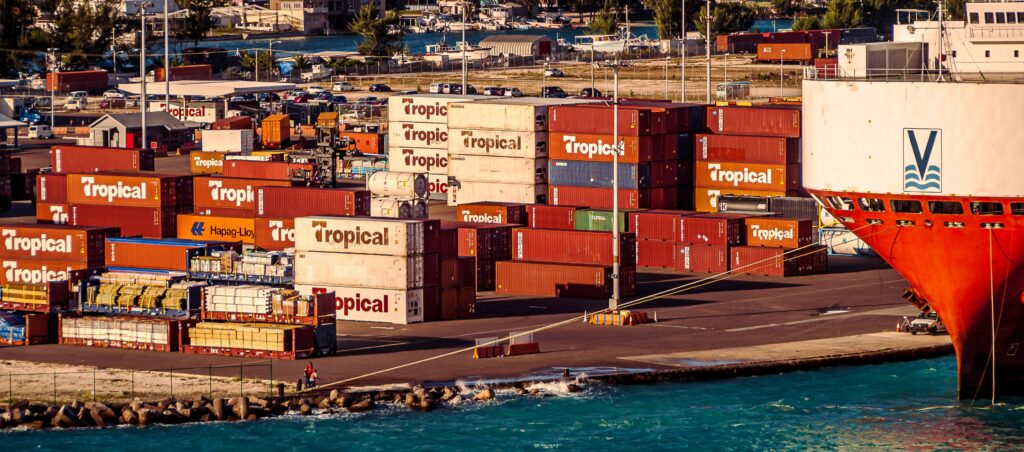The rise of ecommerce and global trade has made cargo management complex, necessitating the need for robust software solutions. Cargo Management Software (CMS) is a game-changer, streamlining the intricate process of cargo handling, right from inventory management to delivery tracking. It offers unparalleled control over the entire cargo life-cycle, ensuring that businesses can deliver products on time, every time, thereby boosting customer satisfaction and loyalty.
This article delves into the necessity of Cargo Management Software, highlighting the remarkable features that make it indispensable for modern businesses to stay competitive and responsive to dynamic market demands. Whether you’re a small business owner or the head of a large supply chain, understanding the potential of CMS is key to your business’s growth and success.

Importance of Cargo Management System Software
Cargo Management System Software plays a pivotal role in the logistics and supply chain industry. It’s a cutting-edge management system for logistics movement that enhances precision, efficiency, and customer relationship management. This innovative software solution integrates with warehouse management software, ensuring packages are delivered on time and free from risks. Moreover, it offers real-time tracking and advanced capabilities that optimize shipping processes, thereby boosting operational efficiency.
This software system is a game-changer in supply chain strategy, as it improves overall company performance by eliminating common issues in cargo delivery. It emphasizes the functionality of the product, which is deemed as the most valuable aspect in marketing, according to the Iron Triangle.
Cargo Management Software is not just about moving goods; it’s also about effective resource planning, applying logistics principles, and honing negotiation skills. The software aids in improving stakeholder relationships and customer care, focusing on customer satisfaction and trust.
Cargo Management System Software reduces costs, minimizes human errors, and provides cloud-based solutions for data security. It stands as a cornerstone of modern logistics operations, revolutionizing the way transportation and freight businesses operate.
Things to consider while choosing a Cargo Management Software Solution
Choosing a Cargo Management Software solution is a critical decision that can significantly impact your logistics and transportation processes. It demands careful consideration of several factors to ensure the system aligns with your business needs and can adapt to future changes in the industry.
Business Needs Assessment: Before you begin the selection process, it is essential to conduct a thorough assessment of your business needs. This includes understanding your current workflow, the volume of cargo handled, the specific features you require, and the challenges you face. Only by understanding these aspects can you identify a CMS that can solve your problems effectively.
System Scalability: The scalability of the CMS is a crucial factor to consider. As your business grows, the system should be able to accommodate an increase in cargo volume and new functionalities. A scalable CMS can grow with your business, eliminating the need for a system overhaul in the future.
Integration Capabilities: A Cargo Management Software should easily integrate with your existing systems, such as enterprise resource planning (ERP) systems or other logistics software. This ensures seamless data exchange, reduces redundancy, and improves operational efficiency.
User-friendliness: The system should be easy to use for all members of your team. A user-friendly interface can increase employee productivity and reduce the time required for training. The more intuitive the system, the quicker your team can adapt to it.
Reliability and Support: The vendor should provide reliable customer support, including troubleshooting and regular updates. This is essential to maintain the smooth operation of the CMS and to address any issues that may arise.
Security: A CMS handles sensitive information, making security a top priority. The system should have robust security measures including data encryption, secure user authentication, and regular backups to protect against data breaches.
Cost: While it’s important to find a system that meets your needs, you must also consider the cost. This includes not only the purchase price but also the costs of implementation, training, maintenance, and upgrades. A cost-effective solution will offer a good balance between functionality and affordability.
Vendor Reputation: Lastly, consider the reputation of the CMS vendor. Research their track record, customer reviews, and how long they’ve been in the industry. A reputable vendor is more likely to provide a reliable, high-quality solution.

Factors Influencing Cargo Management Software Cost
One of the primary factors is the size and complexity of the logistics operations. Larger operations with intricate supply chains often require more advanced features from a CMS, thereby driving up the cost. This could involve tracking multiple shipments across different modes of transportation, managing warehousing needs, or coordinating with various stakeholders.
The need for customization can also significantly affect the cost. Businesses with unique requirements might need a higher degree of customization, which requires more development time and resources, therefore increasing the cost.
The type of software deployment is another crucial factor. On-premise solutions often involve an upfront cost for the software license, installation, and hardware. Cloud-based solutions, on the other hand, typically involve a subscription-based pricing model, with costs spread over the duration of use. The latter usually offers the advantage of lower initial costs, but the long-term expense can add up.
Additional services such as training, implementation support, and customer service also factor into the cost. The more extensive these services, the higher the cost is likely to be. Some vendors offer comprehensive support and training as part of the package, while others might charge extra for these services.
Maintenance costs are another factor to consider. These can include updates, upgrades, bug fixes, and technical support. Some Cargo Management Software vendors include maintenance in the initial cost, while others might charge a recurring fee. It’s important to clarify this upfront to avoid unexpected costs later on.
Conclusion
The need for Cargo Management software in today’s fast-paced logistics industry is undeniable. It not only streamlines operations but also ensures efficiency, accuracy, and cost-effectiveness. Features like real-time tracking, centralized database, automated workflow, and insightful analytics make it a crucial investment for any business involved in cargo transportation.
Hence, it’s advisable to collaborate with a proficient app development company like Appscrip that are committed to delivering top-notch, customized solutions to meet your unique business needs. With our expertise in both software development and understanding of the logistics industry, we are equipped to design a Cargo Management software that truly empowers your business.









